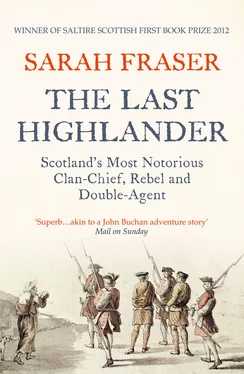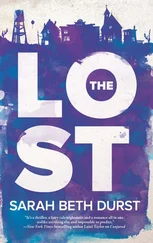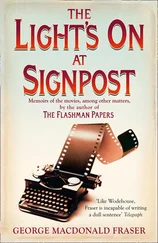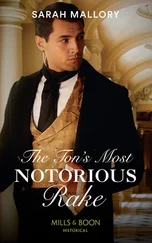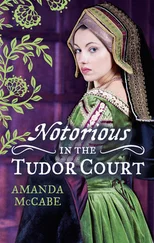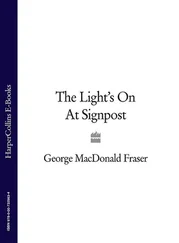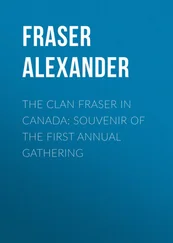‘Lord James,’ Simon wrote with grim pleasure, ‘was beside himself at this declaration.’ Simon’s first response was not to take the surrender. He surveyed the noisy, trembling and quarrelling bunch of regular and irregular forces whose commanding officers had ‘deprived him of lands and title by violence, injustice, and fraud … [He was] outlawed and condemned to death, hunted on the mountains,’ he reflected. The last couple of years had not encouraged the philosophical, university-trained side of his character. They drove him in on most animal resources, to survive and fight, protect his territory. His father had died without elegy and obsequy; without his life being properly honoured. He would ‘avenge the death of his father, and the tyranny of Lord Athol and all his family’. Since birth, these men had tried to manipulate his destiny. Now Simon was clan chief.
Though his first instinct had been to massacre the lot of them, older heads among his advisers made him understand that if he did, ‘not a man in the Kingdom would either assist or pity’ the Frasers’ cause, so he contented himself with humiliation. He lifted his sword tip and made James and Mungo kiss it and swear upon it that ‘they renounced their claims in Jesus Christ, and their hopes of heaven, and devoted themselves to the torments of hell, if they ever returned’ or occasioned ‘Lord Lovat the smallest mischief’. He then lined up his men in two files and made the enemy troop run the gauntlet jostled like criminals, and sent them out of his country.
At bottom, Simon was in desperate need of a pardon to end this feud before his whole inheritance was torched beyond resurrection and his people all starved to death. More in hope than expectation, Simon Fraser thereafter took as his motto Sin Sanguine Victor, ‘Victor without Blood’.
SIX
Victory and loss, 1699–1702
‘I despair of saving myself or my Kindred’
– LOVAT TO THE EARL OF ARGYLL
The Reverend James had educated Simon in his responsibilities to his clan, always to keep going, and to determine his own fate. He conjured,
In spite of malice you will still be great,
And raise your name above the power of fate.
Our sinking house which now stoops low with age,
You show with newborn lustre on the stage.
Typical of Celtic eulogies, the hero is praised and cajoled to ever-greater sacrifices. Other chiefs had passed by this destiny. But it inspired Simon and, as the century drew to a close, left him facing a death sentence. He believed passionately that fate or God had laid on him as a sacred duty the salvation of Clan Fraser. It was, he always said, inseparable from ‘his Nature’. Primogeniture and his personal qualities confirmed fate’s decree. Sir George Mackenzie of Tarbat and then Tullibardine had tried to break and remake Clan Fraser in their own image, using all the skills and resources they could muster. Now Simon sought to restore the clan using his gifts and training.
Without heavyweight political backing, Simon could not win. He faced a long guerrilla action, a ruinous feud, fought on and over his country. While Tullibardine influenced the Edinburgh judiciary, the courts offered no path back inside lawful society. For eight long months the Atholl Murrays had harried and hunted the Frasers, trying to capture or crush their leader, but without success. In a desperate attempt to flush out the Fraser chief, Lord James, smarting from his defeat at Lovat’s hands, had his men drive off stock, smash boats, nets and fishing gear, spinning wheels and looms, and fell trees – anything that might allow the Frasers to live or do a little business. But Simon was still at large, and his messages were getting through to the south. His successes and the substantial levels of support he clearly enjoyed impressed many who sought to bring down Tullibardine and stop him (in the Highlands) and his brother-in-law Hamilton (in the Lowlands) exercising almost unassailable power in Scotland. The Duke of Argyll advised Simon to ‘lay down his arms and come privately to London’ to seek a pardon, informing William III that Tullibardine created chaos and hostility to the King in Scotland in the service of his greed. Lovat and the trouble in Fraser country were Argyll’s proof.
Late in 1699, two weeks after setting out, Simon Fraser entered London for the second time in his life. It proved a wasted trip. The King had left the country and was at Loos in Flanders. By the turn of the century, William was in a stronger position in Europe. In 1697, Louis XIV of France had abandoned his previous war aims and sued for peace. As part of this he now acknowledged the Prince of Orange as William III, King of England and Scotland, thereby denying the claim of James II. Even the Pope proclaimed William III ‘the master; he’s arbiter of all Europe’.
King William was now in Flanders taking part in another struggle provoked by Louis XIV’s ambition. The future of the thrones of Spain and the Holy Roman Empire was at stake. At present the ailing King of Spain, Carlos II, sat on both thrones. The rest of Europe was divided between whether to keep the thrones united, or split them up when Carlos died, and on who would sit on either or both thrones. Competing European interests battled over a settlement, until Louis XIV insisted on having both titles for his second grandson, the Duke of Anjou. Relations between William III and Louis XIV, only recently nosing above freezing point after three years of peace, plunged to a glacial impasse and stayed that way while Carlos II lived.
William needed a relatively peaceful and united Britain to be able to concentrate on defeating Louis. And while no government needed the entirety of its peoples on its side, it did need enough capable supporters to maintain law and order locally, raise taxes and supply soldiers for these international affairs. To be one of the regional managers, Lovat explained, he needed to live as a magnate, not an outlaw. He and his people could then ‘serve your Majesty as they are full ready to do’, as he outlined to King William in a letter Carstares read aloud to his monarch.
Argyll supported Simon by adding his voice. ‘The persecution [Tullibardine] exercised against Lord Lovat and the clan of the Frasers, is capable of exciting all the clans, and even the whole nation, to revolt against the government,’ Argyll asserted. ‘The King cannot do a more acceptable thing for the generality than send [Lovat] his pardon for the convocation of men in arms.’ More people only hesitated to speak out against Atholl and Tullibardine because ‘they threaten so hard and bite so sore’, finished Argyll.
The Murrays vehemently opposed this. ‘It will be a great reflection on the government if there be not a speedy course taken to apprehend’ Simon Fraser, Tullibardine lectured his King, justifying the turbulence and suffering he brought about in Fraser country. Other Scottish politicians petitioned Carstares, emphasising the wider British political element in Lovat’s case. ‘Although I cannot justify Captain Fraser in his proceedings, but yet, the rendering of so many men desperate is not at all to the government’s interest,’ wrote Sir James Stewart, the Lord Advocate.
Simon reiterated that the Frasers wanted peace, ‘to live the more comfortable under the rays of your Majesty’s protection, and thereby be more encouraged to serve your Majesty’s interest’. William listened to the increasing volume of this sort of talk, of Tullibardine’s abuse of his position for private gain. Tullibardine had maintained his following with the promise of positions and pensions to clever, ambitious men. The King decided to stop promoting men put forward by Tullibardine to fill posts in the Scottish executive. Tullibardine reacted by resigning from the government in a fit of humiliated fury. Having the deepest confidence in the counsel of Carstares and Argyll, the King agreed to pardon Simon for his crimes against the Crown and accepted the Fraser chief’s offer of devoted service. However, William refused to enter into the murky business of the forced marriage. The Crown had never charged him with it and logically William could not pardon him for it. He was happy to curb Murray ambitions, but he told Argyll he did not want to ‘disgust’ them too much.
Читать дальше
